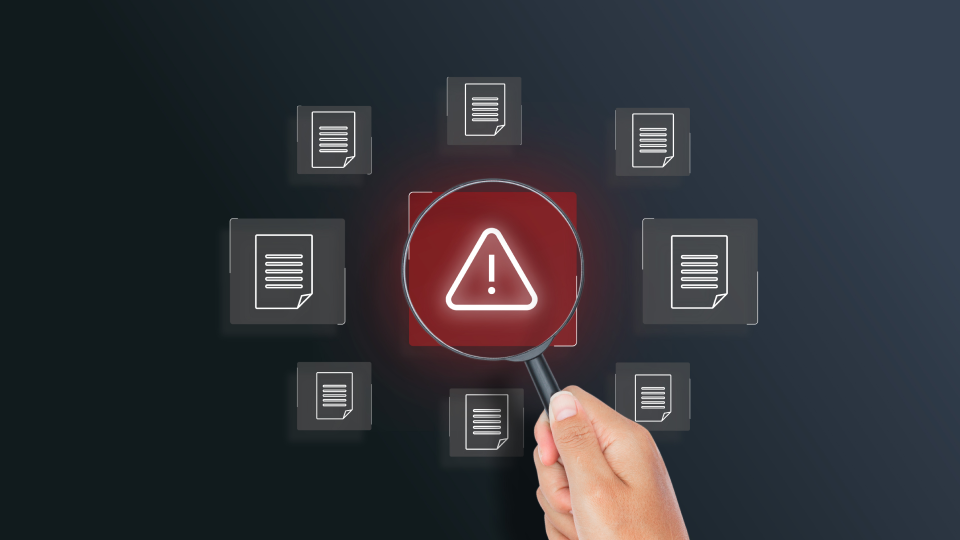What is a Contract Repository? Benefits & Best Practices
Learn what a contract repository is, its benefits for legal teams, and best practices for implementation and access.

Managing contracts across various teams and departments is no small feat. With increasing regulatory complexity and the pressure to maintain full visibility into post-signature commitments, companies need more than a shared folder or storage system—they need a repository that provides structure, clarity, and insight after contracts are signed. That’s where a centralized contract repository becomes essential: it enables organizations to organize, extract, and act on their contractual data with precision.
This article explores what a contract repository is, how it supports effective contract lifecycle management (CLM), and why post-signature visibility is key to ongoing compliance, cost control, and operational efficiency.
We’ll also highlight how platforms like DocJuris deliver value by integrating with existing systems and enhancing workflows without forcing complete process overhauls.
Main takeaways from this article:
- A contract repository enables structured contract management, providing a system of record for contract governance.
- Centralized repositories support version control, compliance, and collaboration.
- Manual repositories create risk through inefficiencies, missed obligations, and limited visibility.
- Integrating with existing tools like SharePoint or Salesforce eliminates adoption hurdles.
- DocJuris enhances existing contract repositories—like SharePoint, Salesforce, Jira, or homegrown systems—by layering on AI-powered post-signature functionality. With tools like Contract Snapshots, Contract Enrichment, and Contract Obligations, DocJuris helps teams bulk-analyze stored contracts, extract and update metadata in Excel, and track renewal timelines and key commitments—without the need for a full CLM replacement.
What is a contract repository?
A contract repository is a centralized location where all past, current, and in-progress contracts are stored, organized, and managed. It supports every stage of the contract lifecycle, including drafting, negotiation, execution, and post-signature obligations.
Unlike a basic document repository, it offers features like version control and audit trails, ensuring governance and compliance. By effectively managing access and analyzing contract performance, a repository turns contract data into a valuable asset for improving decision-making and operational efficiency.
Why a centralized repository matters for contract management

In a fragmented contract environment, the risks of missed deadlines, duplicated efforts, non-compliance, and audit stress multiply. But storing contracts in one place isn’t enough—teams need insight into what’s inside those agreements to take meaningful action post-signature. That’s why centralized repositories, paired with intelligent tools like DocJuris Repository AI, are critical to post-execution contract governance.
Centralized contract storage eliminates these risks by ensuring:
Faster access and bulk retrieval
Searching inboxes or shared drives wastes valuable time. A centralized repository with Contract Snapshots lets teams bulk-upload stored contracts and automatically extract key terms and metadata—without opening each file manually. Its power enables you to understand the components inside your contract, at scale. This dramatically reduces time spent locating specific agreements or clauses and enhances efficiency across departments.
Reduced risk of non-compliance
Contract data is only useful if it’s current. DocJuris's Contract Enrichment allows teams to validate and update contract metadata in real-time, ensuring obligations, renewal terms, and notice periods are always accurate. This minimizes risk during audits and helps legal and compliance teams maintain up-to-date records—without chasing down PDFs.
Improved cross-functional collaboration
A centralized repository with enriched data promotes better collaboration between legal, procurement, finance, and IT. Teams can quickly align on renewal terms, spending commitments, and upcoming obligations, ensuring more informed decisions across functions—especially during software re-purchasing, vendor consolidation, or budgeting cycles.
Better visibility into contract terms and key dates
With features like Contract Obligations, teams can track renewal deadlines, view terms and conditions of all contracts, required notice periods, contract value, and other key terms at a glance. Instead of scrambling to re-read agreements, stakeholders gain a complete view of what the business is on the hook for—and when. This helps organizations proactively plan renewals, consolidate ERP spend, and avoid missed milestones.
The risks of manual contract repositories

While some organizations still rely on shared drives like Google Drive, Microsoft OneDrive, Dropbox, or even physical filing systems for contract management, these manual methods break down quickly at scale. Without automation, visibility, or metadata structure, these approaches introduce significant risk during post-signature contract management. Key risks include:
Version control issues
When contracts are shared back and forth via email or file servers, keeping track of the “final” version can be challenging. Without a dedicated system, it can be time-consuming to track changes and ensure everyone is working with the latest version of a contract, which can lead to errors and disputes.
Lack of visibility and accountability
Manual systems don’t always provide audit trails and user access controls that are required to track who has viewed or made changes to a contract. This lack of visibility makes it challenging to hold people accountable and also creates a security vulnerability, as anyone could make changes to contracts and then blame someone else for their mistakes.
Missed obligations and key dates
Without automated reminders, it’s easy to lose track of renewal dates, notice periods, and upcoming obligations. DocJuris’s Contract Obligations feature solves this by extracting and flagging key dates and notice windows across a bulk set of contracts—giving teams real visibility into what they’re on the hook for, and when.
Security and access risks
Physical contracts are vulnerable to damage, loss, and unauthorized access. Digital files on shared drives may lack proper encryption and access controls, increasing the risk of data breaches and compromising sensitive contractual information.
Inefficiency and duplication
Sifting through scattered files to find one clause or renewal term is time-consuming. Manual repositories also increase the chance of duplicate agreements, inconsistent terms, or missed consolidation opportunities. DocJuris’s Contract Snapshots and Enrichment features eliminate this inefficiency by automatically extracting structured metadata from entire folders of contracts, so users can search, sort, and analyze without opening each file one by one.
Key benefits of digital contract repository management

Implementing a digital contract repository offers significant advantages over manual storage methods—especially when powered by AI. DocJuris’s Repository AI elevates traditional storage by extracting metadata, enriching contract records, and helping teams stay on top of their obligations—all without requiring a full CLM. Here are some key benefits:
1. Improved regulatory compliance and audit readiness
With centralized access to all agreements and enriched contract data, teams can monitor risk more effectively, respond to regulatory inquiries faster, and provide auditors with required documentation instantly. DocJuris’s Contract Snapshots make this even easier by transforming contract folders into searchable, structured datasets, reducing the stress and time burden of audits.
2. Streamlined collaboration across departments via a single source of truth
A digital repository ensures that legal, finance, procurement, and operations teams are working from the same version of every agreement. When paired with real-time metadata updates and enrichment, this shared system eliminates version confusion and promotes informed, cross-functional decision-making.
3. Faster search and retrieval of contract terms
With tools like Contract Snapshots and advanced Excel output, users can instantly locate specific clauses, payment terms, or renewal language—without needing to open each document. Filters, tags, and structured metadata speed up retrieval and drive faster business decisions.
4. Lifecycle tracking and automated reminders
DocJuris’s Contract Obligations feature helps teams track key milestones in the contract lifecycle, including renewal timelines, notice periods, and cost commitments—ensuring stakeholders know exactly what’s due, when, and at what cost. Automated reminders prevent missed deadlines and allow teams to proactively plan vendor renewals, negotiations, or spend consolidation.
5. Enhanced contract performance management
By turning static contracts into living data, a digital repository enables teams to monitor whether contract terms are being fulfilled and where issues may arise. Combined with enrichment capabilities, DocJuris allows users to update outdated contract fields and ensure their records stay accurate—empowering teams to take action, not just store documents.
Best practices for using a contract repository effectively
To fully realize the potential of a contract repository for contract management processes, make sure to:
Establish naming conventions and version control
Apply consistent naming standards and folder structures to ensure easy identification and retrieval of contracts. While version control may be less critical post-signature, it's still important for ensuring auditability and clarity when reviewing historical documents or amendments.
Define user permissions and access controls
Control who can view, edit, and manage contracts by setting role-based access to specific folders, contract types, or metadata tags. This helps maintain confidentiality, prevent unauthorized edits, and ensure only the right stakeholders can access sensitive contract data.
Tag and categorize contracts by metadata
Use DocJuris’s Contract Snapshots to automatically extract metadata in bulk from stored contracts, then enrich that data with accurate, up-to-date fields such as contract value, renewal terms, effective dates, and counterparties. This makes sorting, filtering, and searching fast and reliable—without requiring teams to open documents one by one.
Integrate your repository with review and approval tools
Seamlessly integrate the contract repository with your existing workflow automation and approval tools to streamline the contract review and approval process. This integration ensures all contracts are properly reviewed and approved for timely execution.
Regularly review repository health
Run periodic audits to identify outdated or redundant agreements, validate metadata accuracy, and track upcoming obligations. With DocJuris’s Contract Obligations feature, you can also schedule reminders for renewals or notice periods, ensuring your repository isn't just organized—but proactively supporting your contract strategy.
The DocJuris advantage: seamless integration with existing repository tools

DocJuris offers a powerful contract management solution, with their Repository AI’s suite of features that provides an intelligent layer to seamlessly integrate with organizations' existing content management platforms, such as SharePoint, Salesforce, Jira, and Microsoft 365. Unlike traditional, standalone CLM systems or basic repository software, DocJuris enhances the functionality of tools that teams are already familiar with.
Instead of forcing legal and business teams to migrate to an entirely new system, DocJuris works complementary with and on top of the tools you already use. This highly-configurable model has several critical advantages:
- No need to purchase costly repository software: Your organization can save on implementation costs and training time. In fact, over 80% of organizations run off of Microsoft SharePoint - making DocJuris a premier choice to complement and enhance your existing infrastructure, without re-inventing the wheel. Why start from scratch with a traditional CLM, when most organizations have the components in place to avoid disrupting full team workflows.
- Minimal disruption to workflows: Users can continue working in familiar platforms while gaining new capabilities.
- Immediate time-to-value: Unlike traditional CLMs, DocJuris delivers benefits without a long setup cycle.
With an AI-powered contract repository, DocJuris enables:
- Contract snapshots
- Real-time contract enrichment with visibility into what’s stored in your contracts
- Tracking of obligations and performance post-signature
Most importantly, DocJuris removes the “rip and replace” challenge of introducing a new CLM. Instead of requiring a full system overhaul, DocJuris seamlessly integrates with existing contract repositories and tools—including SharePoint, Salesforce, Microsoft 365, and Jira.
This approach allows legal, sales, procurement, and compliance teams to save on costs and continue working in platforms they already know, without the disruption or steep learning curve of implementing a full-blown CLM. By layering AI-powered capabilities—like redlining, real-time collaboration, and obligation tracking—on top of your existing infrastructure, DocJuris eliminates the need for costly software replacements and complex migration projects.
For resource-constrained teams, this means you can enhance contract operations quickly—without rebuilding campaign workflows or dedicating months to CLM rollout. Organizations see faster adoption rates, time-to-value, lower upfront costs, and dramatically reduced strain on legal and ops teams. In fact, for many companies, full CLM adoption isn’t feasible—but DocJuris offers the benefits of automation and intelligence without the burden of a complete system replacement.
The platform gives you complete visibility into your contract portfolio, taking care of critical aspects of both pre-signature negotiations and post-signature obligations, which creates a truly comprehensive contract management framework.
Optimize your contract storage and review process with DocJuris
A contract repository serves as a centralized storage for your company's contracts. Its benefits are substantial, from reducing legal risk to enabling faster deals and better vendor oversight—but the key to unlocking these benefits is choosing a solution that works with your existing tools.
DocJuris does exactly that; it enhances your SharePoint, Salesforce, or Microsoft 365 environment with powerful AI-driven functionality for contract lifecycle management.
By seamlessly layering AI-powered capabilities onto these platforms, DocJuris offers an easy pathway to contract lifecycle management success. This approach prevents operational disruption, delivers immediate value, and empowers organizations to unlock deeper insights from their contractual data.
Ready to see how you can modernize your contract management—without disruption?
FAQs
What are the challenges with traditional contract repositories?
Traditional repositories like file cabinets, shared drives, or spreadsheets lack the structure, searchability, and security required for complex contract management needs. They offer limited version control, poor collaboration, and expose organizations to compliance risks and inefficiencies.
How does contract repository software enhance the contract lifecycle management process?
Contract repository software provides centralized access, version tracking, audit readiness, and obligation monitoring. It allows legal, finance, and procurement teams to collaborate effectively, retrieve information quickly, and gain insights into contract performance, improving decision-making and reducing risk across the lifecycle.
Related Articles
Get a free demo
See how DocJuris can automate your legal, procurement, and sales operations.

Contract review from 8 weeks to 5 minutes

Mitigate risk faster with dynamic playbooks

Become a valued partner







.jpeg)


